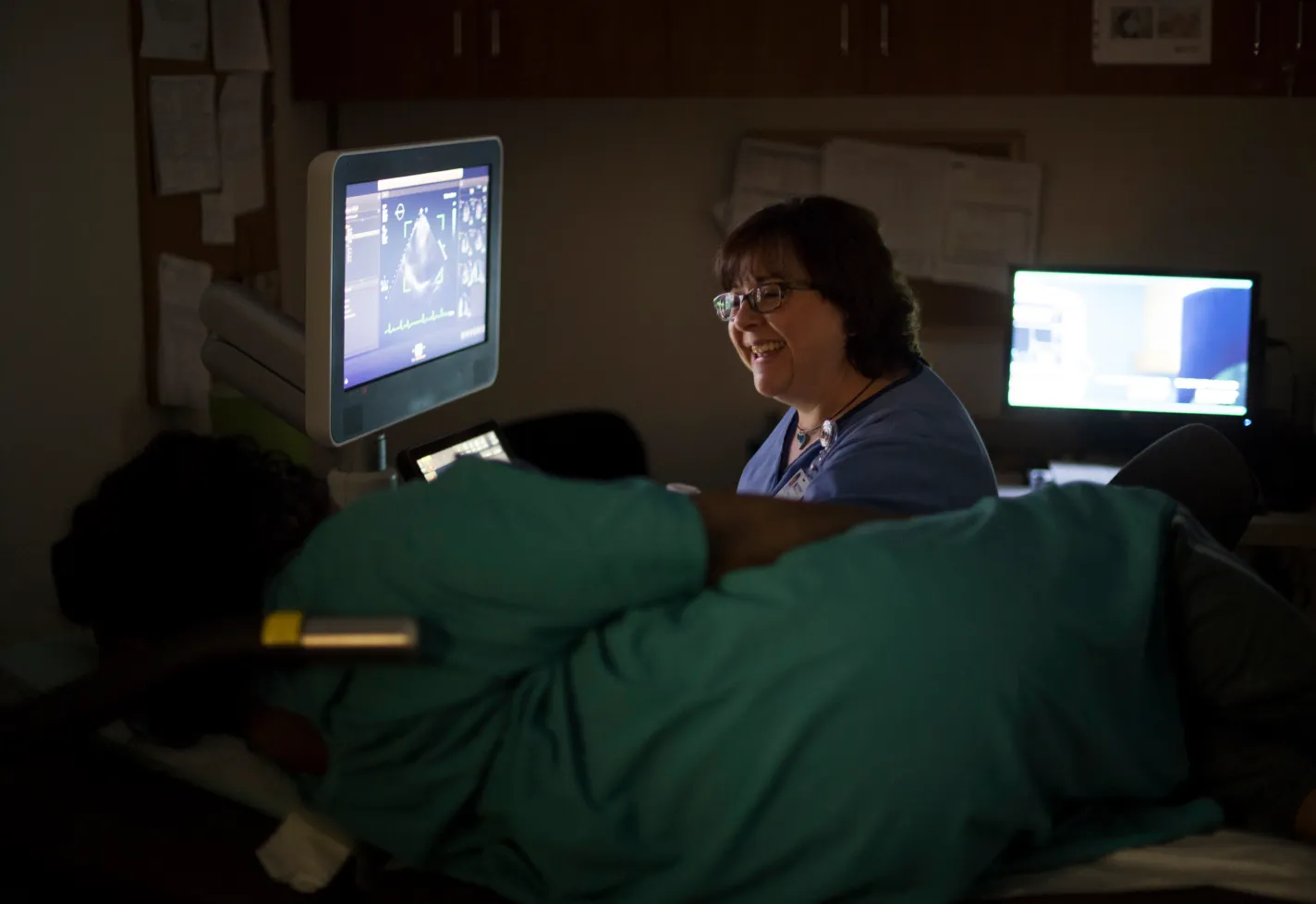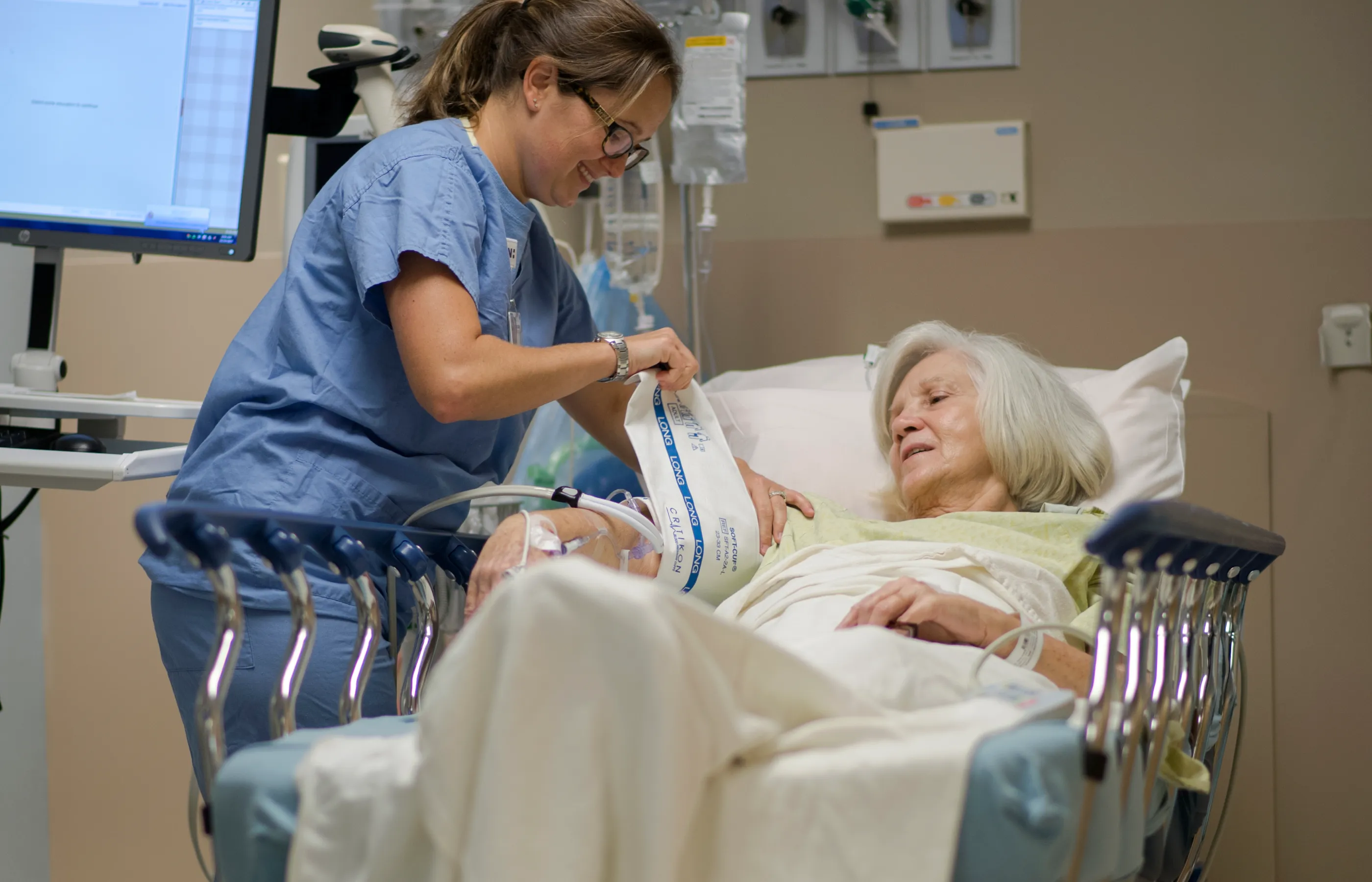Hypertrophic Cardiomyopathy
Get personalized, life-saving treatment for heart wall thickening.
Early diagnosis and treatment can slow progressive thickening of your heart wall (hypertrophic cardiomyopathy) and lower your risk of breathing problems, an irregular heart beat and heart attacks. At Novant Health, you’ll have access to cardiologists, heart rhythm specialists, surgeons, nurses and any other specialists you need to find the treatment plan that works best for you.
Take the First Step
If you believe you are at risk for heart disease, it’s time to take the first step in improving your cardiac health. Visit your primary care provider to discuss your heart health to see if you need a referral to one of our heart specialists. If you do not have a primary care provider, follow the steps below to get started:
Step 1:
Visit your Primary
Care Provider
Step 2:
Discuss your
concerns
Step 3:
Your provider gives
a referral
Step 4:
Choose the right
specialist for you

What is hypertrophic cardiomyopathy?
Hypertrophic cardiomyopathy, or HCM, is a thickening and stiffening of the wall between your heart's lower chambers that reduces blood flow from the left ventricle to the aorta (the main artery that sends oxygenated blood to your body). People of all ages can develop hypertrophic cardiomyopathy. The condition can progress from nonobstructive to obstructive, when blood flow to the aorta is completely blocked.
Less common forms of the condition include apical and obstructive hypertrophic cardiomyopathy. Both are treated using the same medications, surgical interventions, catheter-based therapies, pacemakers and implantable cardioverter defibrillators as the more common types of the condition.
Hypertrophic cardiomyopathy causes and risk factors
Although it's not always known what causes hypertrophic cardiomyopathy, genetics are a common risk factor. Hypertrophic cardiomyopathy is inherited from parents and passed on to children. But having the HCM gene doesn't mean you'll automatically develop the disease.
Other factors that may increase the risk of developing hypertrophic cardiomyopathy include aging and high blood pressure (hypertension).
Hypertrophic cardiomyopathy symptoms
Symptoms may include:
- Unusual chest pain and shortness of breath during exercise
- Dizziness, lightheadedness or fainting right after exercise
- Fatigue or weakness unrelated to exercise
- Heart murmur
- Fluttering, irregular or pounding heartbeats (palpitations or arrhythmia)
- Swelling (edema) in the extremities or abdomen
It's possible to have hypertrophic cardiomyopathy and not have symptoms.
Hypertrophic cardiomyopathy diagnosis
An echocardiogram (ECG) is the most common diagnostic test used to determine whether you have hypertrophic cardiomyopathy. Your physician may recommend other tests, such as:
- Electrocardiogram (EKG)
- Genetic testing
- Magnetic resonance imaging (MRI)
- Stress tests (exercise or pharmacological)
- Cardiac catheterization
You may also be asked to wear a Holter monitor that records your heart's activity for 24-48 hours.
How hypertrophic cardiomyopathy affects you
If you're born with the hypertrophic cardiomyopathy gene, you may need to limit strenuous activity and take medication. Your care team may recommend surgery to prevent other heart problems such as atrial fibrillation, blood clots, heart failure or stroke.
Potential complications of HCM
When left untreated, hypertrophic cardiomyopathy can cause or worsen heart failure, heart valve disease, atrial fibrillation (AFib) and other arrhythmias. It can also cause blockages that impede blood flow and, in rare cases, sudden cardiac death.
Hypertrophic Cardiomyopathy Treatments

Hypertrophic Cardiomyopathy Specialists
Our team of cardiologists, heart rhythm specialists, surgeons, nurses and other heart specialists will work with you to create the treatment plan that works best for you.
